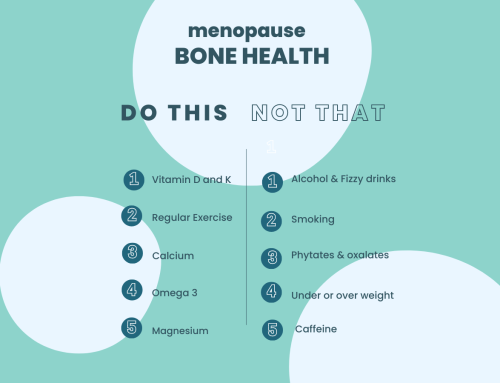A healthy menopause mindset is key for a healthy life. A positive menopause mindset means you’re more likely to take care of yourself physically and emotionally at this tricky time. Therefore you are also more likely to overcome menopause symptoms with a healthy mindset. Menopause affects our mental health through changes in hormones and brain energy so the more we can do to help ourselves the better.
You can Read more here about mental health and menopause.
Having a healthy mindset is easier said than done. Often, our positivity goes out the window when life is hard especially at menopause. We are juggling so much, and menopause symptoms of brain fog, fatigue, joint pain, hot sweats, and no sleep absolutely do not help a healthy menopause mindset.
Any change is challenging, and we have to adapt to changes, and this challenges our mindset at menopause and midlife. When you change your job, move house, or buy a new car, or try a new diet or routine, your brain has to work harder to learn to adapt to the change. These changes necessitate a shift in mindset which is always difficult to start with, but it gets easier with practice.
Generally, we resist change because it threatens our current habit patterns. The brain works the same for any type of change even menopause. The good news is you can train yourself to think and behave in new ways. You can have a new healthy menopause mindset. The more you do it, the easier it becomes. These tools can help you navigate both life and menopause.
“If you do what you’ve always done, you’ll get what you’ve always got.” ~ Henry Ford.
Where Can You Start
Behaviour starts with a thought that stimulates emotions that result in an attitude and finally produces the behaviour. Every thought has a corresponding chemical reaction in your brain. We recognise this when we talk about the feel-good endorphins.
Dr Caroline Leaf, a neuroscientist has researched the area of the brain and emotions. She explains that thoughts belong to 2 groups either fear or faith based and as such produce corresponding molecules which build on the neurons in the brain.
She calls them ‘thought trees’ these nerve cells grow the corresponding branches (dendrites.) Healthy thoughts of joy, calm, and love produce flourishing trees whilst fear based thoughts like anxiety, hate, anger resentment limit or cause ‘weeds’ to grow on these nerve cells. If the thinking continues the negative neural pathways gradually crowds out positive ones preventing healthy trees to grow.
What is amazing is that science demonstrates this is true. What’s more in the long term it can and does make us sick. Repetitive, negative fear-based emotions trigger a stress response in the body and ensuing hormones and inflammation. Inflammation is the cause of many of our modern diseases. This is the basis of the mind-body connection and whole branch of science psychoneuroimmunology.
Although there is evidence that negative emotions damage our health, you can retrain your brain. When you learn to manage your thoughts and emotions the more you can deal correctly with them the more balanced and health promoting, they will become.
Here are some tools that will enable you to changeyour menopause from unhealthy to healthy. This supports behaviour change and help you adapt to midlife and menopause or even new circumstances.
-
Accept yourself for who you are
Valuing ourselves enables positive thoughts. Our culture bombards us with how we are ‘meant’ to look and what our lives are “supposed” to be like. This isn’t just for teenagers! In midlife self-love is challenging. We are coming to terms with losing our fertility, loss of libido, ageing, our appearance and generally not feeling like ourselves. Until recently the menopause was taboo. I see some celebrities portraying an unrealistic idea of menopause. Success is about what is important to you, and not about what other people are doing. Focus on being the best version of you.
-
Understand that logic won’t help the emotion.
When we want to change, we often feel anxiety and fear of the unknown. Logically it makes sense but that doesn’t alleviate the discomfort. Allow time to process whatever emotions you are feeling. Ask yourself questions and don’t judge your feelings, just observe them. This awareness is the first step to embracing change. Focus on positive things and try to make time to relax because when the brain is in a relaxed state you can make decisions more easily. Ths is why you light bulb moments in the shower!
-
Identify Your Why
Take time to identify your WHY this is your motivator will keep you going through the discomfort. Your Why or ‘What’s in it for me’ statement really helps. This is your ammunition when it gets tough. Always look deeper than your first answer. I want to be healthier might actually be I want to have more energy to go for family walks. If you can’t see a positive benefit, ask what negative you are trying to avoid. If you can’t lose weight, you won’t be able to keep up with your family on walks, or feel comfortable going on holiday.
-
Identify barriers
Do identify barriers and be prepared before they come up. Common barriers of time, money, laziness, often seem to get in the way. Beaware that your brain doesn’t lke change so it will play it safe. Think of doable workarounds. You can plan your meals so that you have healthy food options. If you are too tired to go to the gym after work go in the morning by waking up 30 minutes early!
-
Surround yourself with positive people
Surrounding yourself with the right people with a positive outlook will give you a greater sense of wellbeing. Take time out of your busy schedule to connect with your friends, try new things, and have fun. There is so much value I community for wellbeing. The appreciation and love boost your mood and encourages you to strive towards your goals.
-
Keep the big picture in mind
When we are approaching a change, even menopause it can seem daunting. But when we are out the other side you can look back and see with perspective. Keep this in mind as you encounter adversity, challenge, and change in your life.
To sum up
Developing a good mindset is so beneficial at midlife whether you are perimenopause or beyond. It actually isn’t that hard we just need to be consistent. To behave differently, you have to think differently. We can retrain our brains and form new habits. All you need is to be willing to step outside your comfort zones. Change can be scary, but if you can be proactive and manage the process, you can navigate midlife successfully.
So mindset is a big part of how I work with my midlife clients. I take them step by step them through 121 programmes incorporating new food and lifestyle habits. Together we discover and implement the right food and way of life suited to their uniqueness.
If you’d like to know how Simple steps can help you to FEEL MORE LIKE YOU AGAIN. Get in touch by booking a Discovery Call
References
Dr Leaf 2023 drleaf.com accessed 24.8.23 https://drleaf.com
dr leaf ‘Who switched off my brain’ controlling toxic thoughts and emotions. Usa, Switch on Your brain USA Inc 2008 Eds. Carolyn Haggard
Barley E, Lawson V. Using health psychology to help patients: theories of behaviour change. Br J Nurs. 2016 Sep 8;25(16):924-7. doi: 10.12968/bjon.2016.25.16.924. PMID: 27615529.
Conn S, Curtain S. Health coaching as a lifestyle medicine process in primary care. Aust J Gen Pract. 2019 Oct;48(10):677-680. doi: 10.31128/AJGP-07-19-4984. PMID: 31569315.







